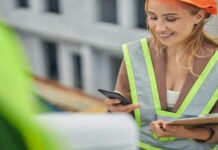Governments, Banks and Landlords Urged to Join Forces to Drive Regional Solar Rooftop Adoption;
DEWA Connects Dubai’s Solar Rooftops to the National Grid, Supporting UAE’s Solar Rooftops Opportunity of USD 3 Billion Until 2020
Abu Dhabi, United Arab Emirates
Governments, banks and landlordsin the Middle East and North Africa (MENA) are urged to join forces to promote solar rooftop adoption, saving on energy costs and creating “green” jobs, industry experts announced today in the build-up to the World Future Energy Summit 2016.
By 2020, MENA is set to see renewable energy investment of USD 35 billion per year, according to the International Renewable Energy Authority (IRENA), with increasingly lower-cost solar photovoltaic modules helping countries to diversify their energy mix.
As a result, the GCC’s solar capacity is expected to reach 10 gigawatts, representing a market opportunity of at least USD 10 billion to 2020, with solar rooftops in the UAE reaching 2.5 gigawatts and a USD 3 billion opportunity, according to a Frost & Sullivan report.
Supporting solar rooftop innovation is Dubai Water and Electricity Authority (DEWA), whose Shams Dubai initiative connects solar rooftops to DEWA’s power grid, in support of Dubai Plan 2021 and the Smart Dubai initiative, launched by HH Sheikh Mohammed bin Rashid Al Maktoum, Vice President and Prime Minister of the UAE and Ruler of Dubai. Part of the objective is to make Dubai one of the ‘smartest’ cities in the world for energy supply and demand.
With the UAE aiming for 10 percent of power generated by renewables by 2030, according to IRENA, DEWA is furthering the UAE’s solar sector through the Mohammed bin Rashid Al Maktoum Solar Park, the world’s largest single-site solar project at 5 GW by 2030.
“Dubai Clean Energy Strategy aims to provide 7 percent of Dubai’s energy from clean energy sources by 2020, 25 percent by 2030 and 75 percent by 2050. The shift towards using clean and renewable energy sources has many benefits for the environment, economy, and natural resources. For example, the Mohammed bin Rashid Al Maktoum Solar Park will help achieve a reduction of over 6.5 million tonnes of carbon emissions, and support the green initiatives and programmes implemented by the Government of Dubai to reduce carbon emissions,” said HE Saeed Mohammed Al Tayer, Managing Director and CEO, DEWA.
“DEWA also launched Shams Dubai to install PV panels on rooftops of buildings and connect them to the grid. The surplus electricity is exported to DEWA’s grid,” added HE Saeed Mohammed Al Tayer.
“At the World Future Energy Summit we will showcase these innovations, along with best practices in supporting innovation in the energy sector through research and development,” concluded HE Saeed Mohammed Al Tayer.
At the World Future Energy Summit, DEWA will also showcase plans to make 30,000 buildings energy efficient by 2030, install 1 million smart metres by 2020, and deploy electric vehicle charging stations throughout Dubai with its Green Charger programme.
Supporting new business opportunities and innovation in the region’s solar market is the WFES Solar Expo, where more than 150 solar exhibitors will interact with innovators, project developers, and buyers to experience the latest solar innovations, learn about solar trends, and network with solar experts at the WFES conference.
WFES Solar Expo will also include key players such as Abdul Latif Jameel, ADC Energy Systems, ALEC Energy, AMANA, EFG Hermes, Renewable Energy Company (REC), SkyPower, SolarWorld, Suntech Power, and Yingli Solar.
“In the Middle East and North Africa, solar rooftops have gone from a niche environmental market to a game-changer with high potential for homes, offices, or mega-projects, and can pay for themselves after only four years,” said Dr Raed Bkayrat, Director – Research, Middle East Solar Industry Association, and Vice President of Business Development – Middle East, First Solar.
“However, for widespread solar rooftop adoption, landlords must understand the concept, governments need to provide regulations and incentives to support landlords, and banks need to be able to find innovative ways to finance solar rooftops,” added Dr Raed Bkayrat.
Hosted by Masdar, WFES 2016 is held at the Abu Dhabi National Exhibition Centre from 18-21 January 2016, co-located with International Water Summit and EcoWASTE.
-Ends-
Photo Caption: Landlords, governments, and banks in MENA must join forces to drive solar rooftop adoption.
About Masdar
Masdar is Abu Dhabi’s renewable energy company advancing the development, commercialisation and deployment of clean energy technologies and solutions. The company serves as a link between today’s fossil fuel economy and the energy economy of the future. Backed by the Mubadala Development Company PJSC, the strategic investment company of the government of Abu Dhabi, Masdar is dedicated to the Emirate’s long-term vision for the future of energy.
For more information about Masdar, please visit: www.masdar.ae
Stay connected: facebook.com/masdar.ae and twitter.com/masdar
About World Future Energy Summit
The World Future Energy Summit (WFES) is the world’s most influential event dedicated to advancing future energy, energy efficiency, and clean technology. Held each year at the Abu Dhabi National Exhibition Centre, WFES is hosted by Masdar Institute. The WFES 2015 exhibition and conference saw 650 companies from 40 countries, and more than 32,000 attendees from 170 countries participate. For more information, please visit www.worldfutureenergysummit.com.
About Abu Dhabi Sustainability Week
Abu Dhabi Sustainability Week (ADSW) is the ground-breaking global forum that unites thought leaders, policy makers and investors to address the challenges of renewable energy and sustainable development. With the global population set to reach nine billion by 2050, ADSW promotes collaborative thinking and development to accelerate the sustainable solutions needed to support rapid economic and population growth. An Abu Dhabi government initiative, ADSW is the largest gathering on sustainability in the Middle East and a significant forum in stimulating the international dialogue and action. For more information, visit www.abudhabisustainabilityweek.com.




























